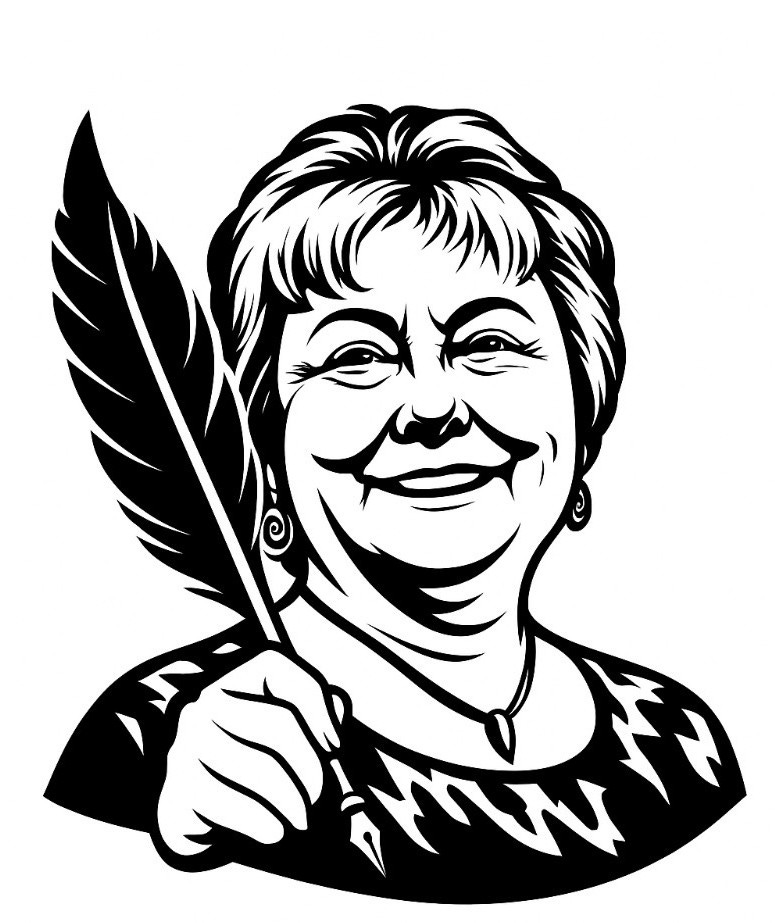FOR THE LAST SEVERAL MONTHS (really for years), something my father said to me almost fifty years ago has been on my mind. My memory of that conversation is like a worrisome fly that buzzes about my head and settles on my arm with its filthy feet.
First, let me tell you something about my father. He was short (standing barely five feet, three inches tall), but his good looks and charisma made up for his lack of physical stature. Everyone loved him for his humor and his sparkling blue eyes. He could speak three languages fluently and two more well enough to have a conversation. He played the piano, loved classical music, and drew charming sketches and caricatures to entertain his daughters. When I was very young, he owned a nursery. Later, he became quite successful and mentored many in his field.
He was not a particularly involved father, yet I always called him “Daddy.” I have warm memories of sitting at his feet or on the arm of his chair (never cuddled in his lap) as he told my sisters and me the stories of his beloved operas and the legends of Greek gods and goddesses. Sometimes he read to us from a German children’s book, Struwwelpeter. We were fascinated by these macabre tales of naughty children who ended up violently punished in amusing ways. I was especially terrified and delighted (probably because my fingers were often in my mouth) by the illustrations of a tailor with gigantic scissors who entered a little boy’s home and cut off his thumbs, “snick snack,” when he wouldn’t stop sucking on them. Daddy enjoyed dramatizing these stories, and we shivered in pretend fear as we listened to his voice, as deep and modulated as any radio show actor.
When I was a teenager, my father began early to treat me as an adult who possessed reason and intellect. He and I loved to debate ideas at the dinner table, a habit my mother disliked and termed arguing. But Daddy was my idol. I vowed to be more like him and less judgmental than my mother.
Most importantly for this story, my father was an immigrant, even a refugee, though he didn’t think of himself that way. He always described his homeland as a place of culture and enlightenment. However, in 1934, he left Germany as a young man of nineteen when the rise of Nazism branded him a subhuman Jew and made it impossible for him to enter university. He came to the United States and ended up in southern California with an American wife, raising a family of daughters in a cottage by the sea.
My father never shared his Jewish heritage with his children and always told us he left Germany “because Hitler and I did not agree.” Yet, as a young adult, I discovered the truth, and it became important to me.
The conversation that I’ve been remembering so vividly these recent days took place in early 1976. I can pinpoint it accurately because I was heavily pregnant with my first child.
On that early spring afternoon when I visited my father in his home office, he asked me what I would name the baby. I remember telling him I wanted the child to have both a Jewish name to honor our ancestors and an Irish name to represent my husband’s family heritage.
“If it’s a boy,” I said, “he will be Aaron David Slattery.”
Aaron was my absolute favorite name, and to allow us to begin calling our much anticipated, unborn child by name, my husband and I had chosen Erin for a possible daughter, mainly because the two names sounded the same. Luckily, Erin was also a popular Irish girl’s name.
I remember my father turned quite serious when he heard my choice. “I would advise against giving your child such a Jewish name,” he said. “It could be a problem. . . . even dangerous.”
I was dumbfounded. This is the United States, I thought. He can’t be serious. I asked my father what he meant. I reminded him that we were in America—in a country where laws prevented discrimination and protected religious freedom.
He looked at me, his eyes steely, their usual twinkle absent. I remember vividly what he said.
“If it could happen in Germany, it can happen anywhere.”
I was shocked. I knew he was thinking of both his beloved homeland, the land of Beethoven, Schiller, Mann, and Einstein, and Germany’s more recent fascist government that caused him to flee. But back then, in 1976, my gut reaction was to discount my father’s words. He is overreacting because he experienced Hitler firsthand, I thought.
There are plenty of political commentators these days who are far more informed than I, yet I am compelled to say my piece. Given my family history, it is very personal to me.
These days, as our country, our United States of America, slides into a morass of falsehoods and police state actions—as our democracy sinks under demagoguery and dictatorship, like my father’s beloved Germany did in the 1930s—I know that what he said that long-ago afternoon was true. It can happen here.
The extensive research necessary to write my two historical World War II novels has given me insight into the growth of fascism in Germany. Now, as I watch the nightly news—mass arrests and loss of civil rights, detention camps rising in the Florida swamps, the growth of hate speech and violence, threats to our justice system, and intimidation of our legislators—I see the early stages replaying before my eyes. I am glad my father is not here to see how close his prediction matches today’s reality.






This is an extraordinarily moving and important piece, Kathryn. The image of your father's warning as "a worrisome fly that buzzes about my head" perfectly captures how certain conversations can haunt us across decades, gaining weight and meaning we couldn't have imagined at the time.